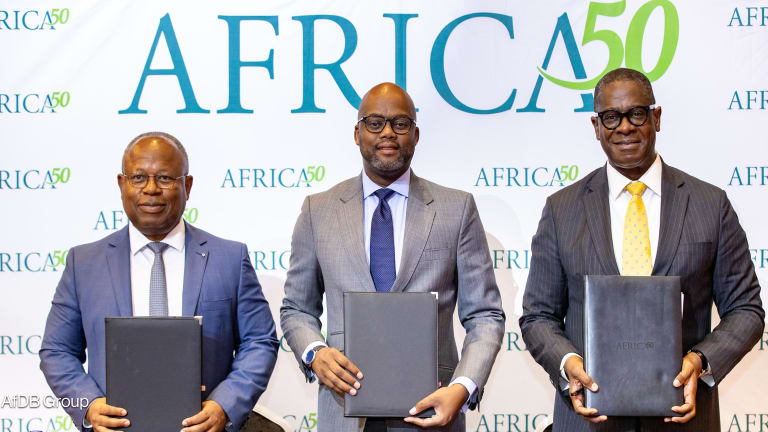
As two Africans who were born on the continent, we understand the huge importance of putting money into the hands of women to lift themselves out of poverty and into prosperity. Although one of us is the CEO at a large financial organization and the other is the CEO at a charitable foundation, we have similar ideas on how to support African women.
The ability to access their own finance gives economic justice, independence, and empowerment not only to women themselves, but also to their families — and, ultimately, to the societies they live in.
We have seen the huge problems related to this become more pronounced in recent years. International aid to Africa has, in some cases, left women out of the equation — even though so much of the aid from places such as the United Kingdom and the United States is supposed to focus on their rights and well-being. Many promises have been made to get more funding to the front lines, but commitments have not translated into action.
This mindset seems to extend to the financial sector, too. Many African banks and financial organizations offer bonds and other products that deliver strong returns and often deliver economic empowerment for women also.
Dahabshiil, Africa’s biggest money transfer company, operates mainly in East Africa and has a specific focus on women. We have seen firsthand that if we break down the financial access barriers, women can move mountains by themselves. But there just isn’t enough funding available at the moment to be lent out.
We need more collaboration in the financial sector, as well as international banks and governments to take a more proactive approach to meet African women’s needs. We need them to cooperate with businesses to enable financial inclusion so they can provide help to those who need it most.
This can ... be the year when we start to put money and decision-making power back into the hands of African women entrepreneurs and business owners to build back their own lives.
—Government agencies and large foundations already use money transfer organizations to get funding to the African continent as international aid but seem hesitant to utilize these same businesses to boost grassroots activism and local economic growth. This is a far more sustainable model and also costs much less in the long run.
This is a middle ground in the “trade not aid” argument that acknowledges the need for localized funding to help end violence and discrimination against women while also recognizing that supporting free trade and small businesses is the best way to break the cycle of economic injustice.
The Five Foundation has focused on breaking down barriers around the concept of “Africa,” which has been reinforced by ignorance. This includes persuading donors to fund African women activists and working with the U.K. Department for Work and Pensions to make sure that pension funds based in the country offer ethical investment options.
These funds have the social benefit of fueling African women’s economic empowerment and are also likely to offer strong financial returns. It seems like a win-win for both the donor community and the private sector.
This ongoing work to change mindsets and get people to recognize their biases around Africa is complex and time-consuming. But we have seen that when women are economically empowered, they can set off a chain of positive events. We hope that this work will also fuel more investment capital for financial institutions in Africa and show the world that it can be the next hotbed for global economic growth.
Next month’s summit of the G-7 group of leading industrial nations offers yet another opportunity to think differently about how we can address gender inequalities for women in Africa, while also improving international trade between the U.K. and the continent. It is inspiring to read that G-7 countries are already committing $15 billion for lower-income nations to “access jobs, build resilient businesses and respond to the devastating economic impacts of COVID-19.” This could have a transformative effect.
June will see another global event: the Generation Equality Forum, during which corporations and donors will be urged to accelerate and scale up our collective efforts to end gender inequality in this decade. We must make sure the decisions made in the coming weeks reflect the growing understanding that this should be a year of rethinking and resetting the broken systems of aid and unfair trade.
This can also be the year when we start to put money and decision-making power back into the hands of African women entrepreneurs and business owners to build back their own lives and secure their futures.
The quiet revolution has already begun. We hope others will more clearly see the huge financial and social opportunities that can lie ahead as the African continent continues to emerge as a global powerhouse and make its own commitment to world peace, security, and prosperity.









